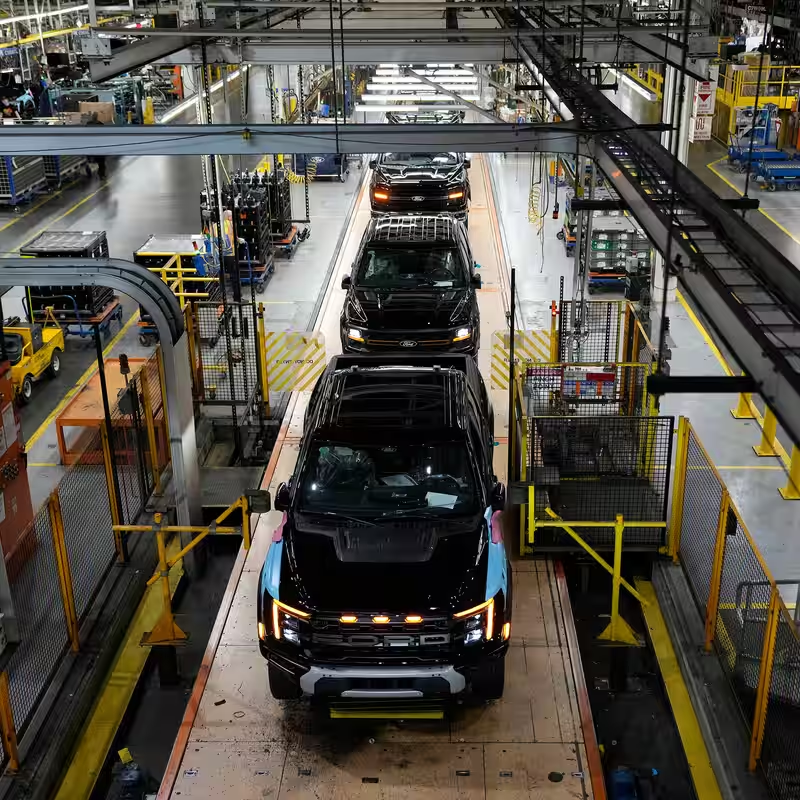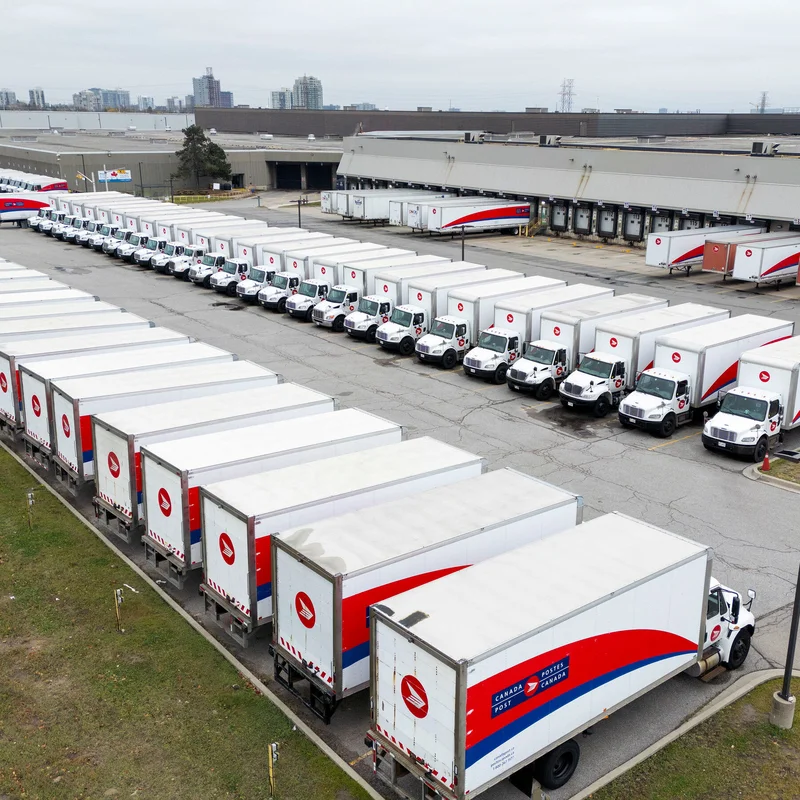Table of Contents
- Q3 Earnings Surge on Strong Truck Demand
- Aluminum Plant Fire Hits Q4 Outlook
- Ford Halts Electric F-150 Lightning Production
- What This Means for Ford’s EV Strategy
- Investor and Industry Reactions
- Sources
Ford Profit Jumps on Strong F-Series Sales
Ford Motor Company reported a sharp rise in third-quarter profits, driven by robust demand for its iconic F-Series trucks and higher-margin commercial vehicles. Net income surged to $2.1 billion, up from $1.3 billion a year earlier, as the automaker capitalized on resilient consumer appetite for gas-powered pickups despite high interest rates.
“Our trucks are flying off the lots,” said CEO Jim Farley during the earnings call. “The F-150 remains America’s best-selling vehicle for a reason.”
Aluminum Plant Fire Triggers Q4 Profit Warning
Despite the strong quarterly performance, Ford issued a cautious outlook for the remainder of 2025. The company cited a recent fire at a key aluminum supplier’s factory—which produces body panels for several Ford models—as the primary reason for lowering its full-year earnings forecast.
The blaze, which occurred in late September at a plant operated by a major Tier 1 supplier, is expected to constrain production through year-end. Ford now anticipates a $300–$400 million hit to fourth-quarter profits due to parts shortages and line slowdowns.
Ford Stops Making Electric F-150 Lightning
In a major strategic pivot, Ford confirmed it has temporarily halted production of the all-electric F-150 Lightning at its Rouge Electric Vehicle Center in Dearborn, Michigan.
While the company stopped short of calling it a permanent cancellation, internal documents and supply chain sources indicate the halt could last through 2026. The decision follows weaker-than-expected demand for the EV pickup, which struggled to compete with the gasoline-powered F-150’s towing capacity, range reliability, and lower price point.
Ford F-150 Lightning vs. Gas F-150: Key Metrics (2025)
| Metric | F-150 Lightning (EV) | F-150 (Gas) |
|---|---|---|
| Starting Price | $59,995 | $41,195 |
| Max Towing Capacity | 10,000 lbs | 14,000 lbs |
| 2025 U.S. Sales (YTD) | ~28,000 | ~580,000 |
| Production Status | Paused | Full throttle |
What This Means for Ford’s EV Strategy
Ford’s move signals a broader recalibration of its electrification roadmap. Once a vocal EV champion, the company is now prioritizing profitability over aggressive EV targets. Ford recently delayed its next-generation EV platform and scaled back plans for three new electric models.
“We’re not walking away from EVs,” Farley insisted. “But we’re building them where customers actually want them—and right now, that’s not in the full-size pickup segment at scale.”
Instead, Ford will focus EV development on commercial vans (like the E-Transit) and smaller SUVs, while doubling down on hybrids—a segment seeing explosive growth in 2025.
Investor and Industry Reactions
Wall Street responded with mixed signals. Ford’s stock dipped 2.3% after hours despite the strong Q3 results, reflecting investor concern over the lowered guidance and EV uncertainty.
Analysts at Morgan Stanley noted: “Ford is making the right call by aligning production with real demand, not policy-driven optimism.” Meanwhile, EV advocates expressed disappointment, calling the Lightning pause a “setback for American electrification.”




